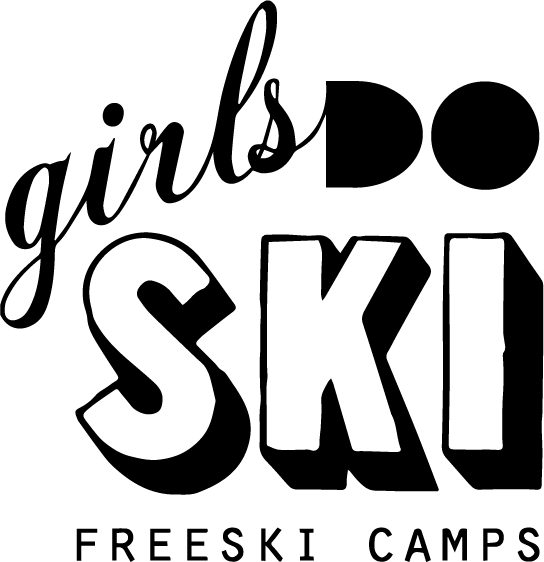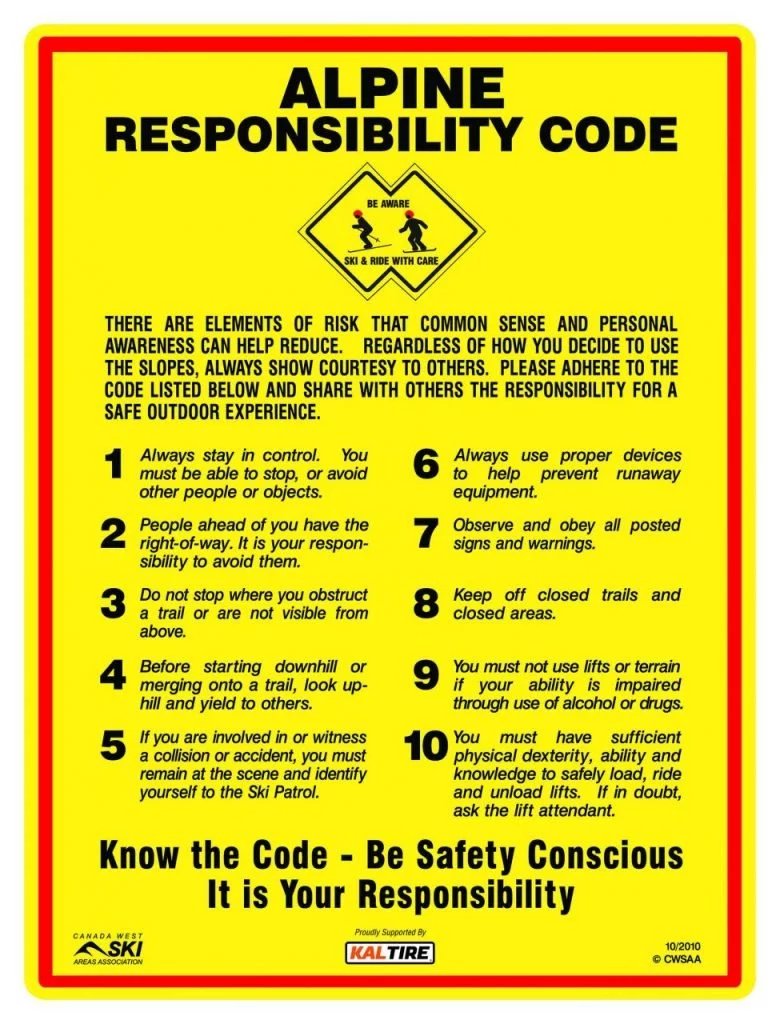Our Policies.
Cancellation Policy
Please take a moment to review our cancellation policy.
What happens if the road closes?
Revelstoke is situated between two often closed or delayed passes on the TransCanada Highway. For this reason, we highly recommend checking the Drive BC page for scheduled avalanche closures, and arriving for your camp the night before. We also recommend that you have an emergency kit in your vehicle (food, water, warmth) in the event you get stuck behind an avalanche closure or accident. If the road closes to Rogers Pass restricting us from going there for a camp day, we will have an alternative plan to tour in town. If you are staying out of town. (i.e, Golden, Salmon Arm) we will not refund any days missed for road closures. We highly recommend staying in Revelstoke.
Cold Weather.
The safety of our participants and our guides is our top priority. In extreme cold, we may not be able to safely run our camps as anticipated. We have the following cold weather policy in place:
In the event that air temperatures drop below -20°C, we will have to modify the course programming to indoor activities such as route planning workshops or ropes skills. This is for the safety of our guests, coaches, and guides. There will be no refund given for a modification in the programming.
If we cancel the day entirely, including both indoor and outdoor activities, we will offer a make-up day on a similar camp later in the season. If you cannot attend any alternate ski day, you will be eligible for a 50% refund of the per day camp fee.
Lift tickets: If you have purchased lift tickets through us and we modify the camp due to cold weather, we will do our best to advocate for a refund or a credit, but please note all refund decisions are at the final discretion of Revelstoke Mountain Resort.
Emergency Evacuation.
In the event of an emergency requiring evacuation, the rescued party will be responsible for all associated costs. Girls Do Ski will not be responsible for the cost associated with any emergency evacuation. Any such costs will be the responsibility of the guest.
In all scenarios, Girls Do Ski highly recommends that all guests purchase appropriate trip cancellation, trip interruption, and medical insurance. A few recommended insurance providers widely used in the ski industry are Acera, Tugo. or Uniglobe.
Inclusion.
Girls Do Ski was born on the basis of inclusion. We are dedicated to offering a safe & supportive community for ALL female-identifying (women⁺) people to feel welcome, period.
We acknowledge
Girls Do Ski would like to acknowledge and honour the four nations on whose traditional land we gather: the Sinixt, the Ktunaxa, the Secwepmec and the Syilx. This acknowledgement is to recognize that these four nations always have been present on the land on which we now live, and we are committed to learning how to honour their voices in our community.
Accessibility Fund
We are pleased to offer financial support and subsidized camp fees for participants who may need it through our Accessbility Fund.
Safety & Risk Awareness.
This page is designed to help you understand the risks of backcountry & resort skiing activities, and spread awareness of how to mitigate them. An important resource that has been used countless times as a reference in this page is https://skisafety.ca/
Know Before You Go
The more information we have, the more empowered we are to stay safe. Know Before You Go includes:
Weather
Bringing the appropriate layers for the forecasted conditions
Understanding that mountain weather is rapid and unpredictable
Bringing sunscreen, goggles, and properly polarized lenses to protect from the sun's rays, even if it’s cold and cloudy
Recognizing the onset of frostbite and returning to a rewarming area if any skin turns white or loses sensation
Read and UNDERSTAND avalanche forecasts for areas in which you wish to travel
Understand how warming cycles throughout the day effect the terrain you are travelling in
Surroundings
Be aware of where you are and the risks that are posed by being there
Don’t stop in places of high traffic such as cat tracks or in the middle of runs
Don’t stop in corners or below blind rollers
Always asses overhead hazards before stopping in backcountry terrain
Establish a buddy system for tree-welled terrain
Always have your head on a swivel, yield to uphill riders
Communicate
As previously mentioned, create a buddy system and always keep that person in your sight
Communicate to a reliable entity your itinerary for the day, including destination, partners, and check in times
Identify designated meeting places in the event on separation
Carry a cellphone with you and have the numbers for SAR & Patrol programmed
Carry a radios or a satellite device for areas without cell service
Equipment
If you have any doubts about the safety of your equipment, get it checked by a professional
Helmets are strongly recommended
Play within your limits
Recognize that exhaustion can take a toll on your abilities
Stay well fuelled, days of skiing take more energy than your regular day
Warm up and cool down before and after days of exertion
Check with your local ski hill about their smoking policy. In the backcountry, always pack out what you pack in - even cigarettes.
Signage
ALWAYS adhere to the rules and notices written on signage in your ski resort, ignoring these messages could result in danger to yourself and others, as well as lift pass loss
Signage does not just pertain to ski runs, but also parking lots, day lodges, bathrooms, retail areas, etc.
Closed means CLOSED
Respect the ski boundary unless you have proper avalanche equipment, knowledge, and a trip plan
Hazards may be marked, i.e. CLIFF, ROCK, HAZARD, but that will not protect you from harm. It is part of your responsibility under the Alpine Responsibility Code to avoid all obstacles or hazards, including those that are so marked.
Be sure to understand trail signage before you attempt any ski runs - i.e. Green, Blue, Black, Double Black, Glades
Speed & Collision Safety
Only ski as fast as you can CONFIDENTLY control, regardless of what surprises or obstructions might be in the trail
Plan ahead - look for uphill skiers, uncovered obstacles, cat tracks, and approach blind rolls and corners slowly
Give people lots of space while passing
Stay alert, conditions can change rapidly throughout the day - no run looks the same at the end of the day as it did at the beginning
Terrain Park
Courtesy of Smart Style
If you are riding through the terrain park, make sure to….
Start small (and build up)
Make a plan (how to you intend to hit this feature?)
Look before you drop (is the run out clear?)
Respect others
Stay within your limits (can you visualize landing on your feet?)
And as always, pre-ride, re-ride, free-ride. For more on park etiquette check out https://skisafety.ca/terrain-parks/
Backcountry Skiing - ASSUMPTION OF RISK
Backcountry Skiing activities may take place in mountainous or backcountry terrain and may involve risks and dangers including the possibility of death, damage to my property and physical or psychological injury
Backcountry skiing activities is subject to various inherent dangers, hazards and risks, including, without limitation: changing weather conditions; avalanches, exposed or subsurface rock, earth, ice, cornices and other natural or manmade objects; trees, tree wells, tree stumps and forest deadfall; variations in the terrain or weather which may create blind spots or areas of reduced visibility; variations in the surface or sub-surface; variable and difficult conditions; streams, creeks and exposed holes in the snowpack above streams or creeks; holes and depressions, cliffs, banks, fences, crevasses
Backcountry skiing activities is subject to human hazards such as but not limited to snowcat roads, road-banks or cut-banks; collision with lift towers, trees, fences, snow making equipment, snow grooming equipment, snowcats, snowmobiles or other vehicle equipment, structures or other persons; winter travel on highways, backcountry roads and snowcat roads
Becoming lost or separated from the instructor or other participants
Encounters with domestic or wild animals;
Weather related injuries and illness including frostbite, exposure, heat exhaustion, sunburn, hypothermia and dehydration
Exposure to and transmission of illness, including COVID-19; accidents or illness arising without ready access to medical facilities
Risks that may arise due to my inadequate physical fitness or endurance
Injuries which may arise from embarking and disembarking ski lifts, snowcats, snowmobiles or other vehicles
Negligence of other skiers, snowboarders and other persons including negligence, mistake or omission on the part of fellow skiers





